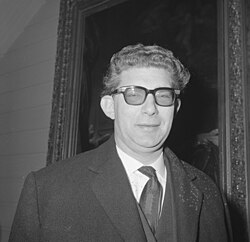 |
|---|
| Party | Votes | % | Seats | +/– |
|---|
| Christian People's Party | 1,447,112 | 26.14 | 57 | +1 |
| Belgian Socialist Party (Wallonia) | 689,876 | 12.46 | 31 | +31 |
| Belgian Socialist Party (Flanders) | 684,976 | 12.37 | 26 | –1 |
| Party for Freedom and Progress | 573,387 | 10.36 | 22 | +5 |
| Christian Social Party | 560,440 | 10.12 | 25 | +1 |
| People's Union | 388,762 | 7.02 | 14 | –6 |
| Democratic Front of the Francophones | 259,019 | 4.68 | 11 | 0 |
| Party of Reforms and Freedom of Wallonia | 256,685 | 4.64 | 15 | –1 |
| Communist Party of Belgium | 180,234 | 3.26 | 4 | +4 |
| Walloon Rally | 128,153 | 2.32 | 4 | 0 |
| Vlaams Blok | 75,635 | 1.37 | 1 | New |
| Democratic Union for the Respect of Labour | 48,616 | 0.88 | 1 | +1 |
| All Power to the Workers | 43,483 | 0.79 | 0 | New |
| Liberal Party (Wallonia) | 41,460 | 0.75 | 0 | New |
| PRLW–Party for Reforms and Freedom | 31,280 | 0.57 | 0 | 0 |
| Belgian Socialist Party (Luxembourg) | 30,222 | 0.55 | 1 | New |
| Ecolo | 21,224 | 0.38 | 0 | 0 |
| Walloon Liberal Party | 9,861 | 0.18 | 0 | New |
| Party of German-speaking Belgians | 9,032 | 0.16 | 0 | 0 |
| ECOLOG | 8,360 | 0.15 | 0 | 0 |
| Revolutionary Workers' League (Flanders) | 6,383 | 0.12 | 0 | 0 |
| Walloon Rally (Luxembourg) | 6,493 | 0.12 | 0 | New |
| Agalev | 5,556 | 0.10 | 0 | 0 |
| Ecology–Politics | 3,922 | 0.07 | 0 | New |
| Liberal, Social and Democratic Party | 3,678 | 0.07 | 0 | New |
| Belgian National Party | 3,465 | 0.06 | 0 | New |
| Revolutionary Workers' League (Wallonia) | 2,597 | 0.05 | 0 | 0 |
| Francophone Liberal Party | 2,313 | 0.04 | 0 | New |
| Belgian Progressive Party | 2,123 | 0.04 | 0 | New |
| Democratic and Progressive Union | 1,843 | 0.03 | 0 | 0 |
| Green | 1,761 | 0.03 | 0 | New |
| United Feminist Party | 1,686 | 0.03 | 0 | 0 |
| Progressive Front–Ecologists | 1,512 | 0.03 | 0 | New |
| Kaganovemus | 1,376 | 0.02 | 0 | 0 |
| Party for Free Communication and Environmental Protection | 993 | 0.02 | 0 | New |
| Party of New Forces | 729 | 0.01 | 0 | New |
| Liberal Party | 698 | 0.01 | 0 | New |
| PDE | 375 | 0.01 | 0 | New |
| PDRT | 311 | 0.01 | 0 | New |
| Total | 5,535,631 | 100.00 | 212 | 0 |
|
| Valid votes | 5,535,631 | 91.61 | |
|---|
| Invalid/blank votes | 507,058 | 8.39 | |
|---|
| Total votes | 6,042,689 | 100.00 | |
|---|
| Registered voters/turnout | 6,366,655 | 94.91 | |
|---|
| Source: Belgian Elections, [4] Global Elections Database [5] |









